Don’t let the Rohingya return to uncertainty

We are glad to finally see some positive development in the repatriation process of Rohingya refugees living in squalid refugee camps in Bangladesh. Through China's mediation, Myanmar officials agreed to take back their forcibly displaced nationals during a meeting with a Bangladesh delegation earlier this week, according to a report in this daily. Bangladesh and Myanmar are now discussing the repatriation of 3,000 Rohingya refugees by December. This development is indeed big and timely, given the worsening humanitarian crisis that the Rohingya refugees face today. The agreement to let the Rohingya visit Myanmar for a second time as a confidence-building measure is also a prudent move.
However, one cannot help but feel a little apprehensive about Myanmar's reassurances regarding Rohingya repatriation. After Bangladesh and Myanmar signed the repatriation agreement back in 2017, attempts were made in 2018 and 2019, but they failed because the Rohingya, with memories of the atrocities inflicted upon them still fresh in their minds, did not feel safe going back. The Rohingya fled Rakhine to escape a military crackdown that the UN has termed an act of "ethnic cleansing." Given that the same military junta runs Myanmar today, we cannot help but sympathise with the Rohingya's lack of confidence. There is also the issue of the Rohingya's full recognition as Myanmar citizens – something the country's government has yet to commit to.
But there is no alternative to repatriation – as the Rohingya themselves have been saying. Since the latest and largest exodus in 2017, Bangladesh has been hosting more than 1.2 million Rohingya refugees with its limited resources and help from the international community. But recent global events have diverted the international community's attention away from this crisis, which has caused a severe setback in aid supply. Earlier this year, the World Food Programme (WFP) had to slash the food assistance for the Rohingya twice as there were not enough funds. In the camps, the Rohingya have no access to education, crime rates are on the rise, and in a desperate attempt to find a better life outside of the camps, some refugees have even gone on deadly sea voyages in the past few years.
We have to listen to what the Rohingya want, and all they want are their basic rights restored, recognition as Myanmar's citizens, and a safe and dignified life back in their homeland. We appreciate what China has done to get the ball rolling on Rohingya repatriation, but now the rest of the international community must also step in. Let the humanitarian agencies, who have been working on the ground since the beginning of this crisis, get involved in the process. Together with the international community and the humanitarian agencies, Myanmar must work with Bangladesh to come up with a viable plan that will ensure that the Rohingya get what they deserve.
Follow The Daily Star Opinion on Facebook for the latest opinions, commentaries and analyses by experts and professionals. To contribute your article or letter to The Daily Star Opinion, see our guidelines for submission.


 For all latest news, follow The Daily Star's Google News channel.
For all latest news, follow The Daily Star's Google News channel. 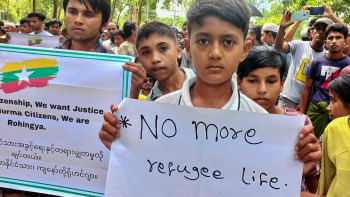



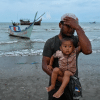
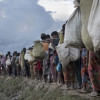

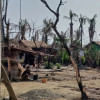

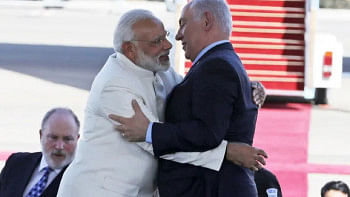
Comments